Home » Kratom, the FDA, and the Battle of 2016

Kratom, the FDA, and the Battle of 2016
- Anthony Dent, Founding Member
- 8 Comments
It hadn’t quite hit its boom. In fact, most people still had no idea what kratom was.
Anytime I asked anyone, they’d say, “Krandom? Whats Krandom?”
And I couldn’t really blame them. For many, Pacific Island botany isn’t exactly a subject of daily study. The ceremonial tea of an ancient Indoensian culture may not have come up in the history books. And besides, they had their coffee. Kratom just wasn’t on the radar.
For some of us, at least.
DSHEA, Kratom, and the FDA: A Musical
The year is 2016.
Wait, scratch that.
In the early 90’s, dietary supplements like vitamins, all natural additives, organic alternative medicines, etc.. hit a boom. Americans wanted to add kale extract to their Omega F-2 Fish Oil capsules. The dietary supplement industry exploded, and with it, a fierce public defense of a right to consume organic supplements and, apocretherial alternatives.
The boom becomes an explosion and pops up on the radar when a weight supplement, ephedra, is responsible for the deaths of MLB and NFL players, in addition to others. This new wave of dietary supplements, guided by a GMO supplement-like growth in sales, has gone a step too far.
So the DSHEA Act was passed in 1994. And do you want to know what it is about?
Yeah, me too.
Nobody can agree on how effective it is. The FDA dislikes it, yet needs it. The Supplement and Natural Industry complains about it, yet finds some very favorable terms. Consumers spend billions, but some end up dead every year. “Bad Actors” becomes a tagline in the struggle forming between the Industry and the FDA. It’s a term the FDA and use to describe market vendors who label a product deceptively, or use ingredients that may be dangerous. They slip past the safety nets, whatever they may be.
Now, the DSHEA Act gives the FDA and FTC federal enforcement powers. It allows them to require testing, and compel product removal. It gives them a wide range of authorities.
It is seldom used, according to the FDA. As well it should be, says the Industry.
“Wait, you mean powdered grass doesn’t cure cancer?” asks the American public. (An IQ test of the American public really rubs the sheen of free market capitalism.)
The FDA meets Kratom
Skip ahead some 20 years. The FDA is still frustrated that they feel they’ve been neutered by a congress that was very much purchased by the Industry when the DSHEA Act passed. They’ve been scouring congress to find someone who will give them more power – for better or worse – but can’t find the means.
And – oh, what’s that?
Kratom, an ancient herb that is native to Southeast Asia and has been used for thousands of years as a medicinal salve, seems to make an appearance. And speaking of “Bad Actors”, plenty have come up in the kratom industry. These absolute morons label Kratom as a “Legal High”, and name it things like “Purp Daddy Syrup.” Even worse, some vendors have – in the past – laced it with far more insidious products, like synthetic intoxicants that are rather poorly received by the body and mind.
This all the FDA wants to see. So it’s what they see. Their pent up frustration about natural products and organic alternatives, all the perceived slights and mistakes and criticism –
Kratom can make right their wrongs, to hell with the millions of Americans who join in on the chorus of “Kratom has saved my life.”
But more than that, Kratom is an enemy.
But FDA Can’t Give up on their Past Lover
The FDA hones in on these bad actors, projecting the infinitesimally small minority of the kratom Industry on the plant as a whole, on its users. They think of the last 20 years of being ignored; they stew when they think of all the regulatory powers that have slipped past them like kratom powder through the fingers; and they begin to get angry.
And as necessity is the birthplace of all creativity, the FDA thinks of a new plan. They focus on the fact that some former opiate addicts and others who have been over prescribed opiates – drugs pushed on them, of course, by the FDA – want their lives back, using this demographic to proclaim that kratom is a synthetic opioid. It’s not. It’s a plant. It’s related to coffee. Synthetic means man made. We know they’re not this stupid. So why the lies?
The FDA faces shrinking budgets. But not shrinking profits. The Opioid Industry, the same juggernaut that sees nearly every West Virginian prescribed at least one long term script a year, pumps the FDA full of cash. The same FDA that fumes about being steamrolled by the Natural Products Industry is happy to be ragdolled by Big Pharma. They held meetings where FDA officials were paid 35k for each sales pitch they would hear. High ranking officials at the FDA regularly “step down” only to pick up a cushy “consulting” gig at a Big Pharma Big Boy within a few weeks. They altered their standard of approval from the golden standard of the Double Blind to something that is widely condemned by the scientific community, encouraging applications and approvals which result in a hefty FDA payday.
Opioids are good for the FDA, and not much else. Kratom is bad for the FDA, and that’s about it.
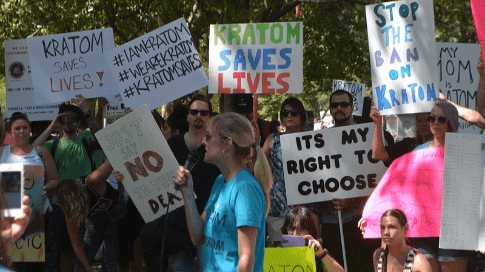
The FDA gets Jealous of the Pretty New Thing
And then kratom comes along. Kratom has helped countless Americans reclaim their lives from opioid dependency. It is a more effective tool in managing pain for some with remarkably reduced side effects, allowing those in chronic pain to reclaim some normalcy in their life.
And the body count?
Just divide however many tens of thousands of opioid deaths you get in America each year by zero. That’s your fatality rate for kratom.
But it isn’t opioids. The FDA can’t send its braintrust to a retirement gig in the kratom industry (No, FDA, this isn’t an invitation to do just that.) They can’t collect bribes and enjoy the control they have sought for so long. And remember, by punishing kratom, the FDA can look in the mirror and feel pretty again. They can say they are doing their job, keeping dangerous opioids off the market.
Except it’s far too late for that. By 2003, enough pain pills were being produced that every American could have their own brimmin’ bottle o’ pills. And kratom isn’t an opioid.
The FDA Calls Big Brother
So about that idea the FDA has been percolating.
They’re already been fuming about a lack of impact. They can’t find a legitimate scientific reason to bring kratom under their jurisdiction. Ignoring the bad actors – who are not accepted members of the kratom industry or community – those involved with kratom have been transparent, inoffensive, and meek. There’s nothing really wrong with kratom, or the people who use and transact it. It’s becoming more popular. All of this is a big problem for the FDA.
So they call for Big Brother. Bring on the tantrum.
After all, it is known as “The Man” around here.
The DEA gets dialed up. The same DEA that has been raiding minority communities for nearly 60 years and imprisoning millions for the sin of smoking cannabis. The same DEA that needs unjust drug laws to justify its existence, that can seize property and funds in a guilty-until-proven innocent process of civil forfeiture that quite literally robs Americans of their material wealth. The draconic, austere, outdated institution that has distracted itself from a noble mission of combating gang violence and reducing the quantities of dangerous drugs, and instead begun to wage a war on American citizens who consume these drugs, often trapped by mental illness or miserable living conditions.
How’s this for a cycle?
DEA targets and arrests minority father for smoking week. Minority father can’t escape prison system. Minority son, already in compromised living condition because of Americas long history of compromised morality in race relations, grows up in deplorable conditions without a father. Depressed, dejected, alone, and unwanted, the son turns to drugs. The DEA comes and swoops him up. The prisons get paid, the DEA keeps their budget as they get to say, “Look at all these mentally ill scum that need to be arrested!”, and everyone goes home happy.
Except the millions, still in prison, for the victimless crime of drug use. Let’s hope the first son didn’t have a child before the DEA swooped up the next legacy familial.
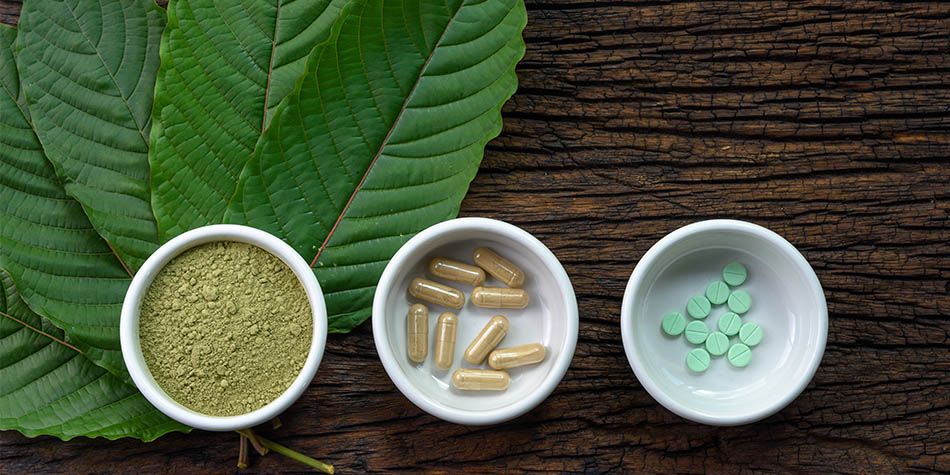
Big Brother… Says no
The FDA’s brilliant plan to bring down kratom and restore their sense of pride and usefulness has been to knowingly mislabel kratom, spread propaganda about it, and play the “but what about the children card?” (Ironic, considering the above passage). They fudge the numbers and skew the data. “Kratom is a threat to Public Safety. Kratom is dangerous.” says the FDA, who wanted it added to the Schedule 1 tier alongside Meth and Heroin, banning it federally and claiming it has no medicinal value. The DEA starts stretching and flexing like a runner at the block. All they need now is a gunshot.
But then something strange happens. Something that has never happened in the history of the DEA.
The DEA, already somewhat preoccupied with things like, oh I don’t know, an opioid epidemic, gang violence, an uprising of meth labs in the midwest, and other truly dangerous threats that they courageously face, looks over the file on kratom that the FDA has given them. Where they were once coiled like a spring to jump into action, they relax. They squint their eyes. And they hand the file back to the FDA.
“No thanks.”
That’s right, ladies and gentlemen. In the most dramatic jilting since Granny Weatherall, the DEA decided it didn’t have the time of day for something more comparable to coffee than drugs. Even with the FDA’s fudged facts, the ever ready and over eager DEA didn’t see a reason to pursue kratom. It simply is not a threat, even to the hypersensitive DEA. But this was not the only factor that steered them.
The embattled institution was bombarded by a justifiably outraged public. The American public had finally just gotten the DEA to back off cannabis (For the most part. They still enjoy a few business destroying raids here and there, just for old times sake). We the people are tired of having our choices whittled down between outrageously expensive healthcare and…nothing. We are tired of being told what we can and cannot do with our bodies.
Not to mention the millions of Americans who have used kratom to reclaim their life. Wounded veterans who say that without kratom, they would not be able to function in society. Fathers and grandmothers and cousins and – wait a moment. These are normal people. These aren’t the “druggies” who we love to rough up. These are taxpayers. There are doctors and lawyers and teachers and electricians and soldiers.
And they are being led by the American Kratom Association, given some star power by Andrew Pelosi, powered by the American public, and legitimized by a deft grasp of the politics behind the scenes. They quickly found congressional support. Imagine that – over 60 members from both houses, in a bi-partisan effort, interceding on the behalf of the American people. Hundreds of state senators and other elected officials spoke up. The AKA mobilized the public into structured resistance. A petition with hundreds of thousands of signatures reached the White House. While it represented only a fraction of America’s kratom community, It was enough to help seal the deal.
Picking up the Pieces
It was a stunning victory. The Kratom community, a huge portion of whom have used kratom to regain some sense of normalcy in their damaged lives, blew a sigh of relief. Veterans would not be robbed of the kratom that helps them sleep and lets then socialize. The chronically ill would not be robbed of their pain relief. Those who had been hooked on the FDA sanctioned prescription opiates would not be forced back into the chaotic life of addiction.
In other words, the quality of life of millions of Americans was preserved. It took a helping of competent leadership from the American Kratom Association, a serving of a persistent and optimistic public, a rare dash of common sense from the DEA, and an even rarer pinch of elected officials representing their constituents.
Oh, and the poor FDA – how mad they are. As the American Kratom Association goes state-by-state with their Kratom Consumer Protection Act, which looks to protect kratom by adding legal framework and regulation to circumvent another debacle like we saw in 2016, the FDA has seen their chances slip away. They took their swing. It was poorly aimed. It didn’t have much behind it. But they were close.
They knew that by making it a Schedule 1, they would permanently preclude it from being studied as having medicinal potential. You know, the type of medicinal potential it’s been showing for thousands of years, that millions of Americans use it for every day. Like how Red Bali is reported to help some users deal with insomnia. Like how Green Vein is said to help others energize themselves. You know, the type of medicinal potential that threatened their golden goose of opiates, and all that sweet cash that comes at the expense of addicted, miserable Americans; the same Americans who once trusted the FDA.
Not anymore. We don’t know who to trust right now. The FDA has come up with a new plan. They are trying to attack kratom in its countries of origin, to prevent it from being shipped in. This at least shows that they know they’ve lost the fight here in America.
Moving On
But the fight isn’t over.
Remember, then, what we have in our quiver.
Facts. The facts that even the DEA, notorious for twisting facts so they can arrest and seize, couldn’t ignore. Facts that show how important kratom is to so many. That show how much safer it is than opiates.
Transparency. That we in the kratom community make clear that there is nothing to hide. That we strive to educate, inform, and be patient in doing so. In most of the states where the AKA gets legislative sessions, bipartisan support is garnered because the AKA offers to provide regulation and transparency, and because these politicians are swayed by the facts. Remember that straightforwardness, honesty, and simplicity are driving kratom’s sustainability.
Perhaps most importantly is continued support for the AKA. They have been relentless. The six states which have banned kratom have already been targeted. Progress is being made in each one, like in Wisconsin, where the AKA brought in some members of the kratom community to testify how kratom has saved their life.
If you can, donate to the AKA. (We are not affiliated with the AKA, but whole heartedly-support their mission). Their success is almost unprecedented in terms of ‘young’ of an institution they are, how effective they’ve been, and how astute their strategies are. Remember, they aren’t just protecting some tree. They aren’t protecting kratom.
They are protecting You and Me and All of Us.
And last of all, remember that you have a voice. It was heard in 2016. Don’t be afraid to shout out again if you must.
Soon, hopefully, the shout will turn to a whisper. That whisper will be heard ‘round the fireplace as we tell our young of the great Kratom battle of 2016.
And how that was the final victory over those who would see it taken from us.
Peace and Love.
AW
Nothing in this article should be taken as medical advice. Kratom does not cure any diseases. Kratom does not prevent any diseases. All reports of kratom’s effects are anecdotal reports and have no been conclusively proven. This blog is intended to be a space for the sharing of peoples stories, conjecture, and an exchange of ideas. Always consult with your doctor before making any changes to your medical routine. Always consult with your doctor before taking new substances. Always do thorough research before you take any new substances and always use caution. This blog does not encourage or suggest the use of any substance, and encourages readers to follow their local laws and always follow the instructions of their doctor.
Featured Products
-
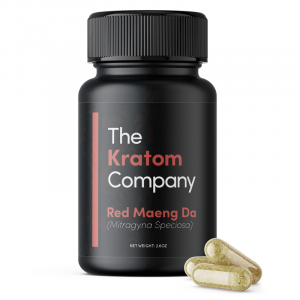 From $24.00Select options This product has multiple variants. The options may be chosen on the product page
From $24.00Select options This product has multiple variants. The options may be chosen on the product page -
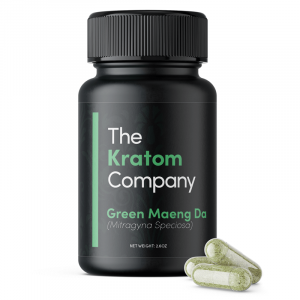 From $24.00Select options This product has multiple variants. The options may be chosen on the product page
From $24.00Select options This product has multiple variants. The options may be chosen on the product page -
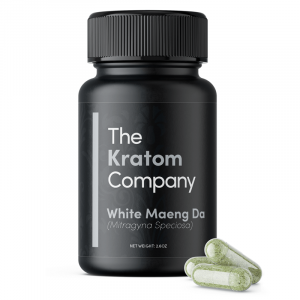 From $24.00Select options This product has multiple variants. The options may be chosen on the product page
From $24.00Select options This product has multiple variants. The options may be chosen on the product page
Explore More Posts
Product Search
Featured Products
-
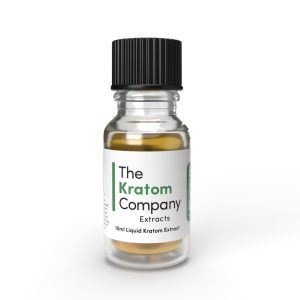 Pure Kratom Liquid Extract
Rated 4.72 out of 5From $20.00
Pure Kratom Liquid Extract
Rated 4.72 out of 5From $20.00 -
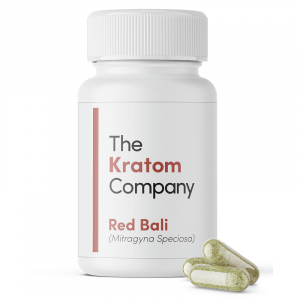 Red Vein Bali Kratom Capsules
Rated 4.70 out of 5From $24.00
Red Vein Bali Kratom Capsules
Rated 4.70 out of 5From $24.00 -
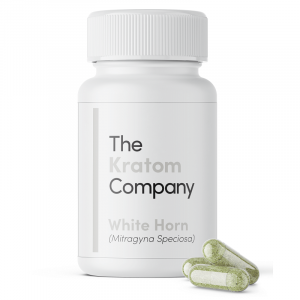 White Horn Kratom Capsules
Rated 4.88 out of 5From $24.00
White Horn Kratom Capsules
Rated 4.88 out of 5From $24.00
Recent Blogs
Follow Us
Strains
Blogs
NEWSLETTER
Sign up for our newsletter!

These statements and products presented on this website have not been evaluated by the Food and Drug Administration FDA. The products mentioned on this website are not intended to diagnose, prevent, treat or cure any diseases or health conditions. Therefore any information on this website is presented solely as the opinions of their respective authors who do not claim in any way shape or form to be medical professionals providing medical advice. The KRTM Company and its owners or employees cannot be held responsible for, and will not be liable for the inaccuracy or application of any information whatsoever herein provided. By purchasing our products you agree that you are aware and in compliance with your local county, state, or federal regulations. Must be 21 years or older to purchase Kratom. The US FDA has not approved kratom as a dietary supplement. We do not ship to the following states, cities and counties in the US where Kratom is banned: Alabama, Arkansas, Indiana, Rhode Island, Vermont, Wisconsin, Sarasota County, FL, Union County, MS, Denver, CO, San Diego, CA, and Jerseyville, IL.

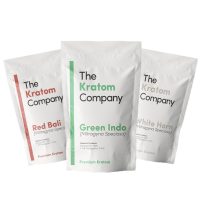




This Post Has 8 Comments
I really like what you guys are usually up too. This sort of clever work and reporting!
Keep up the superb works guys I’ve you guys to my personal blogroll.
I have read so many posts on the topic of the blogger lovers however this paragraph is genuinely a nice article, keep it
up.
You have remarked very interesting points! ps decent site. Petronille Johan Clance
Only a matter of time before yet another FDA battle is overcome. We’re all starting to see their true colors
even politicians are finally starting to understand that saving kratom means saving lives!
This is a great easy read for new members of the community to catch up on the history. Must-read!
people sometimes forget that voices were heard in 2016 and they will be heard again KEEP FIGHTING!!
If the entire community follows these calls to action you sum up all of your posts with, I am very excited for the future of kratom legality. All it takes is unified participation.